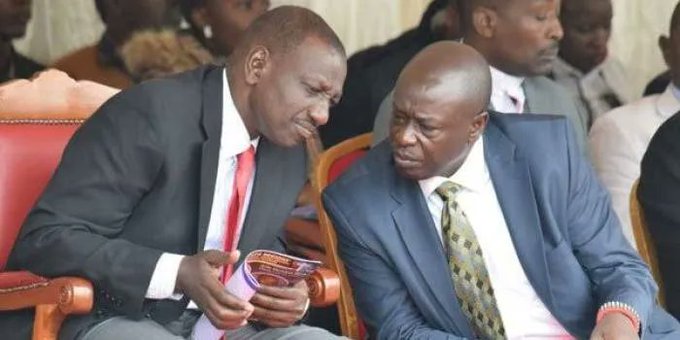Kenya’s political arena has reached a boiling point with Rigathi Gachagua’s explosive accusations of multiple assassination attempts orchestrated by the state, leading to a rapid intensification of tensions between him and President William Ruto. Gachagua’s latest claim that undercover security agents and members of the National Intelligence Service (NIS) attempted to poison him twice—on August 30th in Kisumu and again on September 3rd in Nyeri—underscores the dangerous rift within Kenya’s leadership. His allegations, coupled with the ongoing impeachment process, paint a troubling picture of a government in crisis.
The Directorate of Criminal Investigations (DCI) has wasted no time in summoning Gachagua to record a statement, but the timing of these summons is suspicious. Is the DCI genuinely interested in getting to the truth, or is this part of a broader campaign to silence a man whose political ambitions have clearly rattled the corridors of power? Gachagua’s increasing influence in the Mount Kenya region and his public defiance of President Ruto have made him an inconvenient thorn in the president’s side, perhaps too inconvenient to be left unchecked.
For months, Gachagua has played a dangerous game, positioning himself as the voice of opposition from within Ruto’s administration. His bold criticisms of governance, national security, and other crucial matters have isolated him from Ruto’s allies, but they have also earned him significant support among those disillusioned by Ruto’s rule. The assassination allegations, whether true or not, serve to further highlight Gachagua’s precarious position. On one hand, they portray him as a man under siege, a politician whose life is in constant danger for daring to speak truth to power. On the other, they could easily be interpreted as a desperate attempt to gain sympathy as the walls close in on him.
The halted impeachment process also adds to the growing uncertainty. Gachagua’s impeachment by both Parliament and the Senate has exposed the deep cracks within the government. Although the courts have intervened to stall the process, the writing on the wall is clear: Gachagua’s future in government is hanging by a thread. His political defiance has now moved beyond mere rhetoric to survival.
But let us not be naive. President Ruto, a shrewd political operator, is well aware of the stakes. Allowing Gachagua to survive politically, especially after these serious allegations, could be seen as a sign of weakness. Ruto is no stranger to political battles, and Gachagua may soon find himself outmaneuvered. If the assassination claims are proven false, the fallout could be catastrophic for Gachagua, accelerating his removal from office. Even if the courts ultimately block the impeachment, Gachagua may emerge from this debacle severely weakened, his reputation in tatters.
On the other hand, if Gachagua’s claims hold any truth, the repercussions for the Ruto administration would be devastating. A government that plots the assassination of its own deputy would be viewed as deeply corrupt and unstable, undermining any legitimacy Ruto still enjoys. For now, the accusations, the court battles, and the underlying power struggle continue to threaten the very foundation of Kenya’s political stability.
In either case, Gachagua has already changed the trajectory of his political future, for better or worse. If his claims of survival against a regime bent on silencing him gain traction, he may well position himself as a martyr figure, standing up against a corrupt government. If not, he risks being reduced to a political casualty, ousted by his own miscalculations and an unforgiving political machine.







Discussion about this post